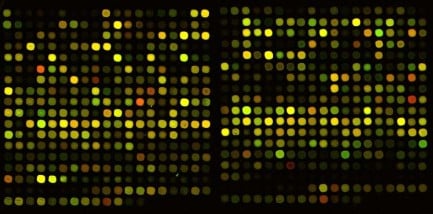While the latter half of the 20th century showed a widening gap between the more and less educated with respect to marriage and fertility, this trend has not significantly altered the genetic makeup of subsequent generations, a team of researchers has found.
The study, headed by NYU sociologist Dalton Conley, appears in the journal Proceedings of the National Academy of Sciences.
“Undoubtedly, spouses are increasingly sorting themselves with an eye toward the education they’ve received–among other traits,” observes Conley. “But while the existence of education-association genes has been well-documented, choosing partners with education levels similar to our own has not resulted in children who have meaningfully altered the genetic makeup of the U.S. population.”
“Our findings underscore the fact that, while genetics are inter-related in complex manners to human social structures, it is not always the case that genetics mirror changes in human society, at least in the short term,” adds co-author Ben Domingue, an assistant professor at Stanford’s Graduate School of Education.
Using the U.S. Health and Retirement Survey, the researchers examined variation in educational attainment, height, body mass index, and depression–along with variation in genes associated with these traits–across birth cohorts (1920 to 1955) in more than 2,000 white, non-Hispanic spousal pairs.
While they found an acceleration in similar levels of educational attainment between spouses over time, this trend was not reflected in genes long known to be linked with educational attainment–in other words, the similarity between spouses with respect to education-associated genes did not vary significantly across cohorts.
Moreover, no notable trends in spousal similarity or fertility were observed with respect to the other traits studied (height, body mass index, and depression) or the corresponding genotypes.


